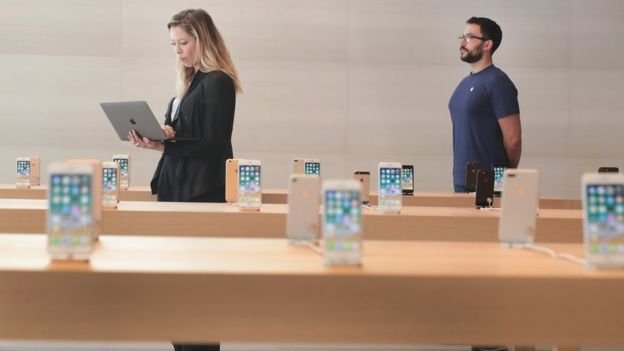Apple says all Macs are at risk of penetration due to "Meltdown" and "Specter"

Apple, the US ICT giant, said all iPhones, iPads and Macs are at risk of being hacked due to gaps in their data processors.
Since the beginning of this week, technology companies have been racing time to address the two microdata, "Meltdown" and "Specter", which could allow hackers to break into communication devices and steal data.
Although Apple has confirmed that it has released some anti-intrusion prevention methods through Meltdown and Specter, there is no evidence that any hacker has exploited vulnerabilities in operating systems.
But the company advised to download the software from reliable sources to avoid the risk of any "offensive" applications.
Apple desktop users believe their devices are less vulnerable to electronic penetration than Android phones and Microsoft operating systems.
However, Multidone and Specter are present in all the data processors that are supplied to computers, tablet PCs and modern smartphones, and Intel and ARM produce almost everything the market needs.
"Operating systems for Macs and iOS operating systems are all vulnerable to vulnerability, but we are not aware of any of them yet," Apple said in a report on its blog on Plug Spot.
"All of the above applies to all types of modern data processing, and affects all the machines that operate with computing systems and operating systems."
The company confirmed that it has supplied its iPhone and iPad Tablet PC products with "anti" software vulnerabilities in the framework of the update of iOS 11.2 and macOS 10.13.2 for the Mac desktop, MacBook, and Mac.
But the Meltdown gap does not affect Apple Watch, as it exists in data processors produced by Intel that are not used to operate this digital clock. It is expected to issue anti-hacker methods to update Safari's Internet browser "within the next few days," according to Apple.
Google and Microsoft announced to users details of products that could be compromised by these vulnerabilities.
Smartphones operating on the Android system, which accounts for 80 percent of smartphones in global markets, will be protected against these loopholes if their users get the latest protection and security software, Google said.
Microsoft has released some updates to the e-holes on a number of its service sites.